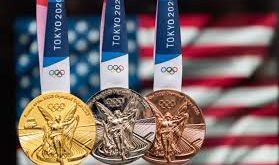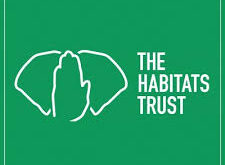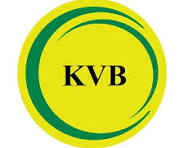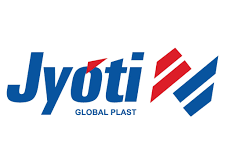Dealer viability and Marketing related issues continue to remain as ‘concern areas’ for Auto Dealers across all segments of the industry
Mumbai, Thursday, 15th September 2025: Federation of Automobile Dealers Associations (FADA), the apex national body of Automobile Retail in India today announced the outcome of Dealer Satisfaction Study 2025 results at a glittering award ceremony at the 7th Auto Retail Conclave held on 10th September. The annual study is undertaken in association with PremonAsia, a consumer-insight led consulting & advisory firm based out of Singapore.
Commenting on the release of the study, FADA President, Mr C S Vigneshwar said, “The Dealer Satisfaction Study (DSS) provides a true mirror to the evolving dealer–OEM relationship. This year, the study captured feedback from over 1,800 dealer principals, covering nearly 5,000 outlets across the country, and for the first time, it was conducted in nine regional languages to ensure wider and deeper participation. I sincerely thank the dealer community for their time and commitment in sharing their views.
The message from the ground is clear. While our industry continues to win on product quality and reliability, structural issues like buyback policies, training costs, and dealership viability cannot be overlooked. Dealers are strongly voicing the need for fairer margins, greater policy flexibility, and more meaningful engagement in OEM decision-making at national, regional, and zonal levels. Post the Government’s GST relief, addressing these challenges assumes even greater urgency, as we collectively gear up for what promises to be a busy festive season ahead.”
PremonAsia Director and COO, Mr Rahul Sharma said, “While product remains the strongest driver of dealer satisfaction, after-sales and viability factors continue to dominate dealer mind space. Our analysis shows that close to two-thirds of dealer sentiment is shaped by these areas. Addressing concerns such as inventory costs, buyback policies and training arrangements can make a meaningful difference to dealer confidence and long-term partnerships. OEMs must work closely with dealers to build policies that balance brand standards with dealer autonomy.”
In the fifth edition of DSS, JSW MG once again emerged as the top performer in the 4W Mass Market with an industry-leading score of 868 points – maintaining its leadership position. In the 2W segment, Royal Enfield led with 852 index points, closely followed by Hero MotoCorp, both registering substantial improvement over last year. In the Commercial Vehicle (CV) segment, Ashok Leyland retained its leadership position with 786 points, while Tata Motors CV also recorded healthy gains over last year.
This year also marked the return of the 3W segment after three years, with Atul Auto topping the category with a strong DSS score of 924. In 4W Luxury, Volvo Cars topped the list with 884 points.
Notable movements in 2025 include:
- Royal Enfield and Hero MotoCorp registering gains of over 140+ points each, the largest YoY improvements across the industry.
- Renault India improved significantly (+90 points) within the 4W mass segment, moving closer to mid-table ranking.
- In commercial vehicle, Tata Motors CVD is the only OEM to improve over last year.
With an Industry Average Dealer Satisfaction score of 781, there has been a 13-point improvement over last year. ‘Product’ continues to score the highest across all categories, reflecting that dealers are largely satisfied with the quality, reliability, and range offered by OEMs. ‘After-Sales Service’ related areas assume the highest importance among all factors, followed by ‘Business Viability & Policy’. However, despite improvements, ‘Business and Viability’ remains a key concern, with dealers highlighting challenges around buyback/write-off of unsold inventory, training cost-sharing arrangements, margins on vehicles and spare parts, and ensuring long-term viability.
While 2-wheeler dealers are more satisfied compared to last year, dealer satisfaction in the 4-wheeler Mass Market and CV segments has declined.
In 2-Wheeler Segment, dealers appreciate the strong product range and the reliability it offers, along with frequent product updates that help them stay competitive in the market. They also value the effectiveness of training provided to customer-facing teams and the fairness observed in the acceptance and rejection of warranty claims. However, challenges remain, particularly regarding the buyback or write-off policy for unsold inventory, the sharing of training costs, and policies affecting multi-brand outlets. Dealers also expressed concerns over margins on vehicle sales and the limited openness of OEMs to incorporate dealer feedback into decision-making.
In 4-Wheeler Mass Segment, dealers continue to commend the reliability and dependability of the products, as well as the breadth of choices available to their customers. Training programs for sales teams are seen as effective, while extended warranty policies and fair handling of warranty claims add to their confidence in the OEMs. Despite these strengths, challenges remain. Dealers often face difficulties with the buyback or write-off of unsold inventory and the cost-sharing arrangements for training. Additionally, managing inventory carrying norms and understanding the total cost structure of running a dealership are seen as critical areas that need more clarity and support to ensure long-term profitability and sustainability.
In Commercial Vehicle Segment, dealers value the reliability and dependability of the products, the wide range of vehicles available, and the frequency of product updates. They also appreciate the fairness in allocations of supplies and the OEMs’ ability to meet vehicle orders in terms of quantity and specifications, which helps them serve customers effectively. However, dealers continue to face challenges around training cost-sharing arrangements and concerns about ensuring long-term viability. Margins on vehicle sales and VORs, as well as overall dealership profitability, remain key areas where dealers seek more support and clarity from OEMs.
 Newspatrolling.com News cum Content Syndication Portal Online
Newspatrolling.com News cum Content Syndication Portal Online







